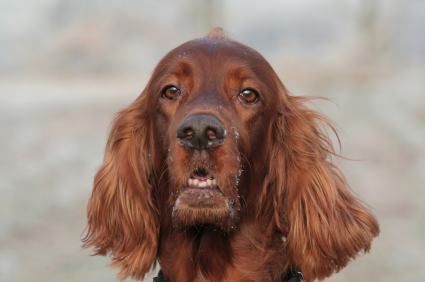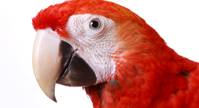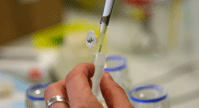Progressive Retinal Atrophy (rcd1-PRA)
Description:
Rod-cone Dysplasia Type 1 (rcd1-PRA) is a form of progressive retinal atrophy (PRA), with early onset of the disease. This inherited disease was originally identified in Irish Setters in the United Kingdom and has long been established as an autosomal recessive disease.

In Irish Setters, rcd1 is caused by a nonsense mutation G>A transition at nucleotide position 2420 in the PDEB gene. The mutation creates a premature stopcodon; the mutated enzyme is 49 amino acids shorter. The truncated protein would lack the C-terminal domain and cannot fulfill its normal function.
Photoreceptor degeneration begins from 10 days of age. Degeneration continues for up to a year when the affected dog is totally blind.
There is no known cure for rcd1 disease. Genetic testing can reveal individuals that are negative (n/n) for the mutation, individuals that carry (rcdI/n), or are affected (rcdI/rcdI) by Progressive Retinal Atrophy.
Acceptable Sample Types:
Animal Genetics accepts buccal swab, blood, and dewclaw samples for testing. Complimentary sample collection kits are available and can be ordered at test now.
This Test Is Relevant For the Following Breeds:
- Irish Setters
Results:
Animal Genetics offers DNA testing for Progressive Retinal Atrophy (rcd1-PRA) in Irish Setters and rcd3-PRA in Cardigan Welsh Corgis. The genetic test verifies the presence of the recessive rcd1-PRA Gene and presents results as one of the following:
| rcd1/rcd1 | Affected | The dog carries two copies of the mutant gene and is homozygous for rcd1-PRA. The dog will display symptoms associated with the disorder and will always pass on a copy of the mutation to any offspring. |
| rcd1/n | Carrier | Both the normal and mutant copies of the gene detected. The dog is a carrier for rcd1-PRA and could pass on either allele to any offspring. |
| n/n | Clear | Dog tested negative for the rcd1-PRA gene mutation and will not pass on the defective gene to its offspring. |
Submit a Sample for Testing:
To submit a sample for testing please go to test now.
To order a sample collection kit please go to order sample collection kits.
Cost per sample is $45.00. Please see our Canine Fee Schedule for all test rates.










